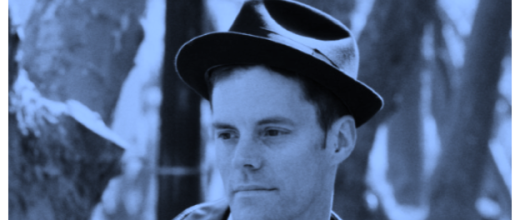-
14Jan2015
- share:
500 Words with Adam P Hunt- Is Gibson Guitars Finished?

500 Words: Is Gibson Guitar Finished?
Founded in 1884 by Orville H. Gibson, Gibson Guitars has been so closely associated with the development of American popular music. Orville Gibson’s development of the arch top guitar and innovative mandolin designs proved to be louder and more durable than their contemporaries and quickly became in demand.
From the Gilded Age, through the Jazz Age, the Great Depression and two World Wars Gibson survived numerous ownership changes and changes in the taste of audiences. Gibson even survived a rather bleak period known as the Norlin years that lasted from 1969 to 1986.
Gibson guitars also found their way into the hands of such early rock and roll notables as Chuck Berry and Danny Cedrone.
While Berry’s name should be immediately familiar to any one with a passing knowledge of 20th Century popular music, Danny Cedrone’s may not be. Danny Cedrone was a session musician and has been credited for playing guitar on Bill Haley’s version of “Rock Around the Clock”.
In 1986 three investors, Henry Juszkiewicz, David Berryman and Zebrowski bought Gibson and initially things seemed have looked promising. Under new ownership Gibson seemed to have righted it’s course and addressed many of the quality control issues that plagued Norlin era instruments.
Over the years Gibson has purchased many non-guitar related companies such as Cerwin Vega, Baldwin Pianos and Slingerland Drums. In November 2014 CEO Henry Juszkiewicz announced, “We’re no longer (just) a guitar company any more”.
I’ve intentionally chosen to ignore forum posts concerning Gibson’s quality control because anonymous forum posters aren’t reliable sources of information.
One complaint about Gibson, however, seems to be pretty widespread and that is their shift away from focusing on smaller, independent music retailers, and more on large chain stores like Guitar Center and Sam Ash.
The problem, in part, that GC’s business model was predicated on opening twelve new stores a year. That’s great, if there were a nigh unlimited amount of people that wanted to buy guitars.
Too be fair, Paul Reed Smith has also hitched their wagon to the Sam Ash and GC horse but it’s a good bet that neither Gibson nor PRS had realized that the GC horse had a terminal case of Coccidioidomycosis.
But by both companies limiting their distribution to a small number of retailers they’ve successfully alienated themselves from smaller, independent retailers.
Another problem is that the economic model that existed to support musicians is disappearing. Once upon a time recording artists could expect royalties from record sales and radio airplay but those royalties too have all but evaporated.
A lot of clubs and rehearsal spaces have also vanished so there are fewer venues for small and medium size acts to play.
Gibson isn’t the only one in peril, as musicians we all are.
If musicians can’t support themselves, the future of music looks pretty grim.
I’m pretty sure before things get sorted out at least one major company is going bankrupt.
I’m not 100% who, but I have my guess.
Adam P Hunt is a freelance writer who has previously written for The Library Journal and Premier Guitar Magazine. We are so happy to have him join us here at Guitar Radio Show.com.
